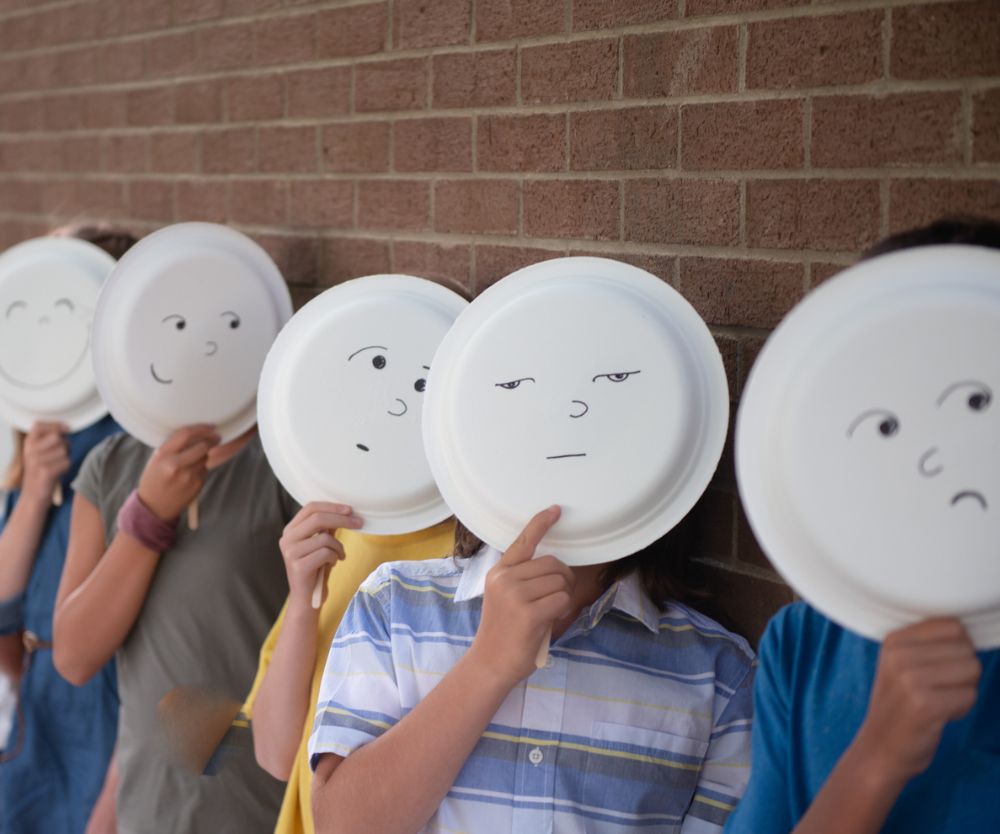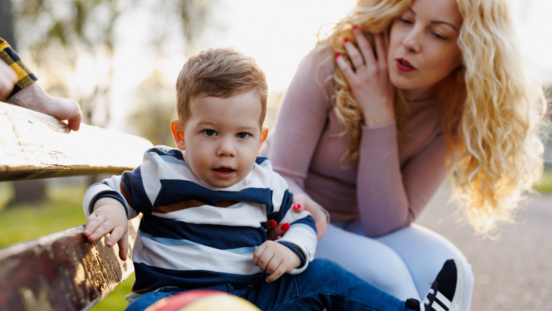5 toddler behaviours that drive you batty (and how to deal with them)
Biting, tantrums, whining and more!
Wait. What? Where did your sweet little tot go? When The Change happens it happens fast and your cherub can become a devil quick-smart with tantrums, hitting, biting and a host of fresh challenges for you to navigate.
But take heart. It doesn’t mean your toddler is turning feral – like most things in the early years, it’s a learning phase, so it pays to have expert tips up your sleeve for if/when your baby turns.
Here’s how to deal with the top 5 toddler behaviours before they drive you batty.
1. Biting others
“My daughter bites other kids at her playgroup, usually because she wants a toy they’ve got. I tell her off but it doesn’t stop her. Help!”
The solution:
All kids can become aggressive – it’s an in-built survival mechanism – but don’t always have the maturity to deal with it. On occasion, your toddler will find a situation too overwhelming to handle and that can lead to biting.
It may be tempting to pretend it’s not happening but parenting educator Lois Haultain says that’s not enough. “You have to intervene because it’s a harmful behaviour. You need to be very clear as you say, ‘No! We don’t bite people, we’re gentle,’ then remove her from play,” she says.
It may be the last thing you feel like doing but a reassuring cuddle will help, too. “Remain loving towards your biting child but be firm as you shadow them. Keep your message consistent and clear, and your response swift and calm, and she’ll learn it’s not on,” says Lois.

A toddler’s curious fingers almost always end up poking around in their nose, and the key is to keeping your reaction low key.
2. Nose picking
“If I had a dollar for every time I saw my two-year-old with her finger up her nose or eating what she finds there, I’d be a millionaire. Should I worry?”
The solution:
This is a phase all children go through. “Your toddler begins this kind of activity out of a healthy need to explore,” says Lois.
Stay relaxed as you talk about hygiene, and make it fun and empowering for your child to use a tissue and be responsible for throwing it in the bin.
“Avoid making the issue one where your child feels empowered by pushing your buttons. It may cause you embarrassment in public places but detach from other people’s reactions and calmly pass your toddler a tissue – otherwise it could become a secret weapon for your toddler to resort to when wanting your attention.”

If you can work out what causes a tantrum you might be able to avoid it.
3. The public tantrum
“My daughter, who’s two-and-a-half, has tantrums at the supermarket. She hurls herself on the floor, screaming. How can I control her?”
The solution:
“Let go of the idea you have to control your child and think about how you can help her learn to control herself,” says Lois.
“A toddler having a full-blown tantrum is experiencing the fight-or-flight response, where the body courses with adrenaline. She can’t ‘calm down’ or ‘snap out of it’, and she can’t be reasoned with. She may, however, be soothed by being held and encouraged to take deep, slow breaths, which allows the physiological changes needed to get back to normal.”
Work out what caused the tantrum to avoid having it happen again – usual suspects are frustration at being in a trolley, being tired, hungry or bored, or wanting something she can’t have. Talk about these before you go; also get her involved in the shopping to distract her – for example, ask her to point out all the green things.
4. Playing with his privates
“My son’s started playing with himself all the time. When I ask him to stop, he doesn’t. What can I do?”
The solution:
All toddlers will discover their private parts and get pleasure from touching them at some stage, so the behaviour isn’t anything out of the ordinary.
“Playing with his private parts is just an expression of his curiosity, and he’ll generally move through this phase,” says Lois.
How you deal with it depends on your feelings as a parent – some parents have no problem with it but others can find it embarrassing.
“An older toddler can be taught about what’s okay to do at home and what’s not okay to do in public. Come from the perspective of keeping them safe and not from moral judgements,” says Lois.

A whining toddler can be exhausting so it’s a good idea to have some stock responses.
5. Whinging
“Whenever I ask my toddler to do something she just whines – it’s infuriating. Help!”
The solution:
“Think about why they’re whining,” suggests Lois. “There may be an underlying cause, like illness, that you need to attend to. Toddlers can also whine when they feel they’re not getting the closeness they deserve.”
Pre-empt her need to whine for attention by making sure you’re giving your toddler lots of positive attention and time. Then, as your toddler develops language you can ask her to ‘Speak in a normal voice’ or ‘Ask me clearly what you want’, withholding your attention until she does so; you can even try saying, ‘I can’t hear you until you remember your normal voice.’




